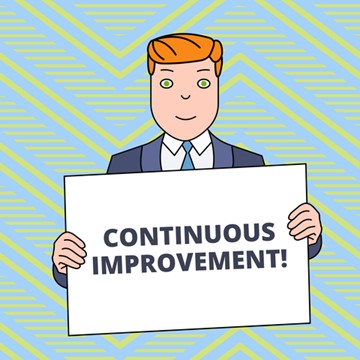by virtualworks | Aug 13, 2023 | Business, business growth, Customer relationships, Leadership, Marketing, Mastery, office management, Outsourcing, Productivity, Team Work, Time Management, Virtual Assistant, working from home, working remotely
 When you think of the most expensive admin assistant on the Planet, you might think of someone like Tony Stark’s assistant who puts up with all his quirks, but who is handsomely paid for her hardship. Or a billionaire’s assistant who is available 24/7 and at a moment’s notice may be called upon to drop everything and jump on a plane to Tokyo to attend meetings with their boss. You might think that…… and you would be wrong.
When you think of the most expensive admin assistant on the Planet, you might think of someone like Tony Stark’s assistant who puts up with all his quirks, but who is handsomely paid for her hardship. Or a billionaire’s assistant who is available 24/7 and at a moment’s notice may be called upon to drop everything and jump on a plane to Tokyo to attend meetings with their boss. You might think that…… and you would be wrong.
YOU.. yes.. you… are the most expensive admin assistant on the planet.
How can this be true? It’s because studies show that administrative tasks take up as much as 25% of an organization’s time.
So, what does this mean? Before we even talk about the dollar cost of this truth let’s talk about time. As a business owner, working a very conservative 60 hours a week, this equates to 15 hours per week. Which may not seem like that much, but how about when we look at the annual cost of this truth?
720 HOURS per year the average business owner spends on administrative tasks, that’s THREE MONTHS! Take that 720 hours and multiply by your client charge out rate. Not only is that a lot of money for doing back-office work that you shouldn’t be doing in the first place, it’s also money you haven’t billed because you’ve been doing “the paperwork”. If you outsourced these tasks alone at a much lower rate (hopefully) than you bill your clients, just think what you could do with an extra three month’s worth of time and a whole lot of extra money every year!!!
- How could your organization grow?
- What activities could you do with your family?
- How could you invest in your network and members?
- How could you serve your community?
If you have ever thought, “if only I had more time…” (you know that’s just an excuse, right?!?) and yet repeatedly find yourself burning the midnight oil filing invoices, inputting information into a database, updating your social media (or wishing you had time for social media)…
Everyone has the same 24 hours in a day so why not change things up and use those hours to full advantage?
by virtualworks | Jan 30, 2023 | Business, business growth, Marketing, Mastery, Team Work, Time Management, Value Based Fees
 When an organization needs to write a proposal, it can be for many different reasons, such as business proposals, project proposals, proposals for research funding or non-profit organization funding, each of which require a particular focus. Today I’ll focus on writing proposals in response to a solicited request, like contract work.
When an organization needs to write a proposal, it can be for many different reasons, such as business proposals, project proposals, proposals for research funding or non-profit organization funding, each of which require a particular focus. Today I’ll focus on writing proposals in response to a solicited request, like contract work.
All organizations need revenue, whether they are non-profits, associations or business enterprises. While it’s great to have repeat clients and members, there are times where organizations have to get out there and look for that work by other means and one method is by responding to a Tender, Request for Quotation, Request for Services, Request for Proposal, etc.
At times when an organization is provided with one of these Request documents, it can be met with some shock as to the amount of information being requested for a simple piece of work. Why so much detail? In short, some of the Requests may be from clients that use public funds and are accountable for how those funds are spent or the client is simply seeking good value for money and are looking for evidence from organizations that their potential contractor is capable of providing the services in a manner that is of good quality and is cost effective.
So, what makes a good proposal?
Like any consumer, the client is looking for good value for the money they plan on spending. By responding to what they are looking for, or solving their problem, stated in the request in a clear manner, a well written proposal can give you the edge on the competition.
There are many areas on the internet to find information on how to prepare a proposal. For example, if you are considering preparing a proposal for the Government of Canada, you may want to check out their site at buyandsell.gc.ca on Preparing Proposals.
Let’s take a look at some of the Do’s in proposal writing:
- Do read the request thoroughly to understand what the client is looking for. You need to understand where the client is coming from in their current state, their needs, and possible opportunities to provide a solution to their problem.
- Do ensure the goods or services are something your organization provides. If you are looking at a Request that is asking for something you may not provide, you may have to look at sub-contracting a portion of that work (if allowable), or it may not be worth your time to respond.
- Do ask questions where something is not clear, or you need information to help you prepare your proposal. These questions are helpful to the organization submitting a proposal and it may tell the client where they need to make the request clearer for all.
- Do watch out for question deadlines and submission deadlines – Proposals received after deadlines are usually not allowed.
- Do really take a look at the criteria in the Request. In most cases it is the criteria what your proposal will be reviewed against, so make sure to answer all parts of each criteria listed in the Request document.
- Do plan ahead to make sure there is enough time not only to write the proposal, but research the Client, understand the resources you have available, and have the proposal reviewed a few other people in your organization to make sure the submission is aligned with the Request. Another pair of eyes is always good!
The obvious Don’ts are those actions contrary to the Do’s above and:
- Don’t have the client search on external links for supporting material, especially if the request states that all supporting material must be in the proposal. In many cases, information from external sources can’t be taken into consideration and proposals are reviewed as they are provided, with no opportunity to add more in later. NB: some exceptions may be allowable, but they will probably be stated in the Request document, if they are.
- Don’t put it on your references to fill in the blanks of what should be in your proposal. If there is a request to provide references these are most likely only to verify what was stated in your proposal.
While it was mentioned above that Requests are received from clients, there are also many sites where organizations can search for potential Request documents to provide a proposal to such as MERX, Biddingo. Also check your city’s municipal, university, hospital or non-profit websites.
Best of luck in your proposal writing endeavors!
by virtualworks | Mar 13, 2022 | Customer relationships, Leadership, Marketing, Mastery, Productivity, Social Media, working remotely

Just a little reminder today that the art of the follow up is now easier than ever. Why? Because of our ever-increasing virtual world of electronic media, social media, video, audio, smart phones and goodness knows what else will be available tomorrow!
Add these resources to what were used even 10 years ago, and there really is no reason not to follow up with your donors and sponsors for their contribution and to keep in touch with your members.
It’s so easy for organizations to post to their donors’ and sponsors’ Facebook feeds: send them a text message, record a personal video or send an email. On top of this you can use Skype, Facebook or Google Chat or Hangouts to connect and have a virtual coffee break to check in. AND add to this the more traditional ways of keeping in touch with cards, notes and gifts in the regular “snail” mail, there’s no excuse not to keep in touch with your networks. Personally, I like to mail hand-written cards and gifts. From a marketing perspective, there’s nothing more alluring than ‘lumpy’ mail, so include a pen, a block of sticky notes or a little gift with a card; the chances of that piece of mail being opened will increase exponentially. Even if you just write thank-you (for your time, for your call, for your donation, for your sponsorship…), doing so will go a long way. The combinations you can use to keep in touch are endless!
While most organizations spend time recruiting potential members, sponsors and donors, what about your current members, sponsors and donors? Do you ever thank them, take them out to lunch or send them a birthday card or gift? Your current database of contacts are your biggest fans and the most likely to refer. Stay connected with them and nurture those relationships! It doesn’t have to cost a lot of money – it’s the thought that counts.
by virtualworks | Feb 13, 2022 | Accomplishments, business growth, Leadership, Mastery, Productivity, Team Work, Time Management
Many organizations start with a great idea that will change the world and, through time and effort, they will evolve to be the best in their field. Though you might not think of it these terms, but what they’re doing, what they’re actually reaching for, is “mastery”.
You know this, because you have steered your non-profit through adversity and success, put in the hours of work, training, research, and sweat to make a difference. I don’t have to tell you that becoming the ‘master of business’ requires hard work. Malcom Gladwell would tell you that it takes 10,000 hours of “deliberate practice” to master a skill.
Imagine watching the best Formula One driver, or the most incredible ballerina. They make their chosen trade look so easy and accessible. It is only when you attempt to duplicate the complex beauty of the Dance of Sugar Plum Fairy (reported to be one of the most difficult roles to dance) or harness 1000 horsepower around a turn pulling 3 G’s in a Formula-1 car, you realize that just because something looks easy doesn’t mean it is.
And that may be true for something like ballet or the violin where the skill is quantifiable. Becoming a master of your non-profit or association is much more than “time in” on any endeavour.
As I look around there are any number of organizations providing services to their members, value to their donors, exposure to their sponsors in any number of ways. What separates the successful from those who have become a master at their industry is a gritty combination of discipline, hard work, humility and generosity. Most of us would agree with the first three, but generosity?
There’s an old adage, “if you want to learn something well, teach it to someone else”. In order to teach well, it requires that you face your presuppositions about things, unearth those ideas that you didn’t even realize you believe. Being the master of any subject (even one that you invented) requires you to be able to objectively look at whatever you’re doing and seeing ways it can be improved. To teach someone else what you know requires a certain generosity. After so many years of ‘doing you’, that can be difficult, but that generosity has the reward of unearthing flaws in your system in order to improve them, and you cannot master what you think is perfect.
Now expanding on the generosity of teaching and of talent development, you gain the opportunity to:
- Invest: You are investing time leading to growth as an organization and investing in another person. How great is that?! Can you imagine if Bill Gates just did it all himself without bringing in a team? Bringing in others to be a part of your team grows your organization and its mandate.
2. Discover Improvements: By letting others in on your system of doing things and teaching them how to do what you do they may discover and share new ideas and improvements you had not initially thought of. (another ‘set of eyes’ is always a good thing)
3. Trust and Grow: By trusting your team to deliver, instead of always just yourself, you free up time to do more and expand.
So while you’re changing the world, be generous, develop your talent base and grow!
 When you think of the most expensive admin assistant on the Planet, you might think of someone like Tony Stark’s assistant who puts up with all his quirks, but who is handsomely paid for her hardship. Or a billionaire’s assistant who is available 24/7 and at a moment’s notice may be called upon to drop everything and jump on a plane to Tokyo to attend meetings with their boss. You might think that…… and you would be wrong.
When you think of the most expensive admin assistant on the Planet, you might think of someone like Tony Stark’s assistant who puts up with all his quirks, but who is handsomely paid for her hardship. Or a billionaire’s assistant who is available 24/7 and at a moment’s notice may be called upon to drop everything and jump on a plane to Tokyo to attend meetings with their boss. You might think that…… and you would be wrong.



Recent Comments